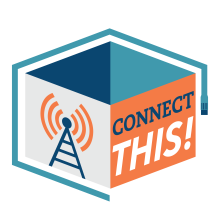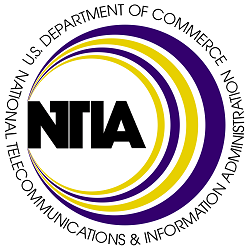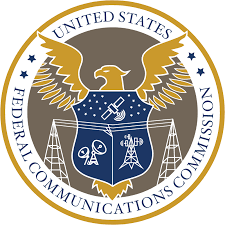
Fast, affordable Internet access for all.


Mapping is hard. You know it, and so do we. Despite that reality, at least from the outside, it looks like the FCC has spent the entirety of this decade avoiding the hard decisions necessary to make sure precious federal dollars are wisely used and the data that drives our policy is easily accessible and faithful to reality. This week on the podcast, Christopher is joined by Tom Reid, President and founder Reid Consulting Group. Tom shares what his firm has been doing to help local governments get around this persistent problem, and how with some thoughtful design and sophisticated data work we can use what is out there to build a pretty clear picture of the places we need to close the infrastructure gap.
Tom and Christopher end the show by talking a little about how the burden of proof in proving poor, unreliable, or no service is being extended to local governments, households, and nonprofits in the upcoming challenge process for states as the latter prepares for the next stage of the BEAD process.
This show is 37 minutes long and can be played on this page or via Apple Podcasts or the tool of your choice using this feed.
Transcript below.
We want your feedback and suggestions for the show-please e-mail us or leave a comment below.
Listen to other episodes here or view all episodes in our index. See other podcasts from the Institute for Local Self-Reliance here.
Thanks to Arne Huseby for the music. The song is Warm Duck Shuffle and is licensed under a Creative Commons Attribution (3.0) license.
With the Affordable Connectivity Program (ACP) poised to run out of funding in early Q2 next year, and no funding source lined up to keep the program alive, a recent U.S. News & World Report survey underscores the significance of the program in the face of rising prices from the nation’s major Internet Service Providers (ISPs).
The ACP offers a monthly benefit of $30 dollars for qualifying households and $75 for qualifying households on Tribal lands (as well as in some remote areas). Over 20 million Americans to date have enrolled in the program to help pay their Internet service bills, but with the $14.2 billion ACP program on track to run dry as soon as May of next year – even amid a historic national effort to establish “Internet For All” – the affordability crisis has become more worrisome for a growing number of Americans.
U.S. News & World Report’s survey found that Internet prices are going up and that families are compromising other expenses to pay for connectivity, affirming the urgency among digital equity advocates to identify a source of continued funding for ACP, as well as push for more structural solutions that address the root causes of why Americans pay among the highest prices for broadband service in the developed world.

This week on the podcast, Christopher is joined by Karl Bode, a returning guest who has long covered tech and the telecommunications industry. After a short conversation about the continued absence of monopoly abuse in policy conversations about broadband access and affordability today, Karl and Christopher tackle the proposed return to net neutrality announced by Chairwoman Rosenworcel last week.
They talk about how we got here in the first place, including the landmark decision by the Commission in 2015 to largely abdicate responsibility for Internet-related regulatory activities and the states that stepped in to fill the void. They end the show by considering for a bit what it might be like to have an expert federal agency whose activities governed by a strong regulatory framework and the teeth to enforce its mandate to extend fast, affordable, reliable Internet access for all.
This show is 38 minutes long and can be played on this page or via iTunes or the tool of your choice using this feed. You can listen to the interview on this page or visit the Community Broadband Bits page.
Transcript below.
We want your feedback and suggestions for the show-please e-mail us or leave a comment below.
Listen to other episodes here or view all episodes in our index.
Subscribe to the Building Local Power podcast, also from the Institute for Local Self-Reliance, on iTunes or Stitcher to catch more great conversations about local communities, the concentration of corporate power, and how everyday people are taking control.
Thanks to Arne Huseby for the music. The song is Warm Duck Shuffle and is licensed under a Creative Commons Attribution (3.0) license.

This week on the podcast we bring back a fan favorite from a year ago that feels particularly relevant, especially as the FTC prepares itself to undertake landmark antitrust cases against Google and Amazon.
Christopher is joined by Harold Feld, Senior Vice President at Public Knowledge. Feld is a staple of the field, and has been a consistent voice not only for consumers but broadband advocates of all types for more than two decades.
The show takes on a reflective nature, as they talk about theories of change in the context of doing broadband policy today. Harold shares how he thinks of the progress that gets made in the long term by aligning the corporate incentive with the public interest. He shares coming to terms with having lots of hard days, the power of fighting battles you expect to lose, and learning, getting better, and building powerful coalitions along the way. Harold and Christopher end the show by talking about some examples of the latter, including important wins like the Rural Tribal Priority Window and the expansion of community networks of all shapes and sizes.
This show is 48 minutes long and can be played on this page or via iTunes or the tool of your choice using this feed. You can listen to the interview on this page or visit the Community Broadband Bits page.
Transcript below.
We want your feedback and suggestions for the show-please e-mail us or leave a comment below.
Listen to other episodes here or view all episodes in our index.
Subscribe to the Building Local Power podcast, also from the Institute for Local Self-Reliance, on iTunes or Stitcher to catch more great conversations about local communities, the concentration of corporate power, and how everyday people are taking control.
Thanks to Arne Huseby for the music. The song is Warm Duck Shuffle and is licensed under a Creative Commons Attribution (3.0) license.

Join us Thursday, September 28th at 3pm ET for the latest episode of the Connect This! Show. Co-hosts Christopher Mitchell (ILSR) and Travis Carter (USI Fiber) will be joined by regular guest Doug Dawson (CCG Consulting) and Kim McKinley (UTOPIA Fiber), with special guest Sean Gonsalves (ILSR) to tackle the promised return of net neutrality rules by the FCC, Google Fiber's recently announced ACP plans, why the word "monopoly" seems in such short supply in the BEAD plans states have begun to file, and the future of spectrum sharing in the United States.
Email us at broadband@communitynets.org with feedback and ideas for the show.
Subscribe to the show using this feed or find it on the Connect This! page, and watch on LinkedIn, on YouTube Live, on Facebook live, or below.

Naming groups of things is one of the few pure joys in life. But despite having a shiver of sharks, a thunder of hippopotami, a discovery of witches, and about a million others, as of yet we've got nothing to describe a group of Internet access and infrastructure who have forgotten more about the business of broadband than the average person is likely to ever see, smell, or hear. From the economics of building fiber networks to the technical challenges of different radio spectrum bands, they separate the signal from the noise every single day.
So how about a scattering of wonks?
This week on the podcast, we bring over the most recent conversation from our Connect This! Show, where for 80 episodes we've hosted broad discussions about broadband policy and infrastructure deployments and live by the mantra that the devil's in the details. Christopher is joined by Travis Carter (USI Fiber), Kim McKinley (UTOPIA Fiber), and Heather Gold (Mears Group) to tackle a host of issues, including why we don't see more cities doing deals with entities like Google Fiber, what we can expect now that Anna Gomez has been confirmed to the FCC, what it means for BEAD grantees if the Affordable Connectivity Program goes away, and more.
Along the way, they hit on what we're seeing in Vermont's Communications Union Districts, a partnership in West Des Moines, Iowa, and whether there's renewed hope for the ACP as it nears the six-month mark from running dry.
This show is 79 minutes long and can be played on this page or via Apple Podcasts or the tool of your choice using this feed.
Transcript below.
We want your feedback and suggestions for the show-please e-mail us or leave a comment below.
Listen to other episodes here or view all episodes in our index. See other podcasts from the Institute for Local Self-Reliance here.
Thanks to Arne Huseby for the music. The song is Warm Duck Shuffle and is licensed under a Creative Commons Attribution (3.0) license.
In November 2021, Congress passed the Infrastructure Investment and Jobs Act (IIJA) which, in addition to funding the single largest federal investment in broadband infrastructure expansion, also mandated the implementation of a broadband nutrition label.
Similar to the nutrition label on the back of packaged food in grocery stores, the broadband label requires the transparent disclosure of broadband pricing and service information to help customers make informed decisions about service.
In November of 2022, the FCC issued a Notice of Proposed Rulemaking detailing how the label will be implemented. Industry and consumer advocates alike submitted nearly 250 filings during the public comment period, which ended in March 2023.
Most recently, the FCC released an Order of Reconsideration in response to three petitions it received from coalitions pushing back on or clarifying the rules outlined in the proposed rulemaking.
FCC Says 'Up To' Amounts Not Transparent Enough
The first petition was submitted by a broad swath of trade groups – including ACA Connects, America’s Communications Association; NTCA, The Rural Broadband Association; NCTA, The Internet & Television Association; The Cellular Telephone Industries Association; and USTelecom, The Broadband Association – and specifically pushed back on the FCC’s proposed requirement that ISPs disclose every one of their fees on the label, as well as requesting permission to list “up to” amounts for fees, citing the amount of administrative work it would take to comply with the requirement.
The key for states to unlock their portion of the $42.5 billion in federal BEAD funds is the submission and approval of their Five Year Action Plans and Final Proposal. The infrastructure law requires states to first file an action plan, and then prepare more detailed Initial Proposals, allowing residents and stakeholders to submit public comments.
So far, 14 states have filed their Five Year Action Plans with the National Telecommunications and Information Administration (NTIA), the Treasury Department agency in charge of allocating the funds to each state and U.S. territory. According to the NTIA’s website, Maine, Louisiana, Delaware, Georgia, Hawaii, Idaho, Kansas, Montana, North Carolina, Ohio, Oregon, Pennsylvania, Utah, and Vermont have all filed their draft Five Year Action Plans.

The states that are now in the process of completing their Initial Proposals include: Delaware, Kansas, Louisiana, Montana, Ohio, Tennessee, Vermont, Virginia and Wyoming.
Today, we will look at two states (Maine and Louisiana) and follow up with the others as we are getting a clearer picture of how each state intends to put this historic infusion of federal funds to use.
Maine
It may not generate a lot of headlines in a national press obsessed with AI and billionaire fist fights, but the debate over the final version of the looming farm bill remains important all the same. Especially when it comes to the future of affordable broadband.
The farm bill, generally renewed every five years, provides U.S. policymakers the occasional opportunity to address agricultural and infrastructure issues essential to not only the basic functioning of the country, but the very survival of marginalized Americans.
That includes programs like the Supplemental Nutrition Assistance Program (SNAP, or “food stamps”), which provides affordable food to an estimated 41.9 million Americans–or roughly 12.5 percent of the U.S. population.
The bill has also proven essential to the ongoing maintenance and equitable distribution of modern infrastructure, including affordable broadband access. That includes the funding of essential programs such as the U.S Department of Agriculture’s ReConnect broadband grant program, and the Community Connect Grants program.

The farm bill may also soon play a key role in maintaining another key government program: the $14 billion Affordable Connectivity Program (ACP) currently overseen by the Federal Communications Commission (FCC).
Both Band Aid And Key Lifeline

We're more than 15 years and a hundred billion dollars into the alphabet soup of federal broadband infrastructure subsidy programs, and millions upon millions of households are stuck on deteriorating connections and capacity-constrained technologies. This week on the podcast, Christopher is joined by Jonathan Chambers, partner at Conexon, to talk about how the BEAD program is our last chance. And to make sure we get it right, we have to grapple with the array of long-standing failures - purposeful and not - that have gotten us to this point: the regulatory capture of the FCC, the willful ignorance of bad data collection and mapping, the acceptance of disingenuous "technology neutral" arguments, turning a blind eye to the imbalance in service and cost between our cities and rural expanses, and pretending that not every households in the country can have a first-class, affordable, reliable Internet connection.
This show is 40 minutes long and can be played on this page or via Apple Podcasts or the tool of your choice using this feed.
Transcript below.
We want your feedback and suggestions for the show-please e-mail us or leave a comment below.
Listen to other episodes here or view all episodes in our index. See other podcasts from the Institute for Local Self-Reliance here.
Thanks to Arne Huseby for the music. The song is Warm Duck Shuffle and is licensed under a Creative Commons Attribution (3.0) license.